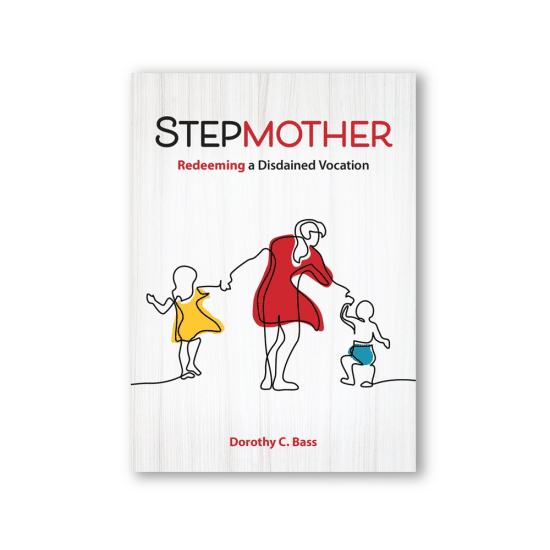By Hannah Elliott
Associated Baptist Press
NEW YORK — In Brazil, a 51-year-old woman gave birth to her own twin grandchildren. She used embryos from her 27-year-old daughter, who had tried for four years to conceive.
In January, a Texas-based “human embryo bank” announced prospective parents could choose pre-created embryos based on photos, family histories and medical reports of the people who donated the sperm and eggs.
And some career-minded young women have frozen their eggs to use them later in life when they are established professionally but when middle age may prevent them from conceiving the old-fashioned way.
They’re all choices made with the help of science for one goal: to have children. But how far is too far in the race for parenthood?
Many conservative evangelicals say fertility clinics have long since crossed the line and started “playing God.”
Southern Baptist heavyweights have condemned embryonic stem cell research as a “sad and pathetic” assault on human dignity. And most Christian scholars say having children at any cost is not biblical.
But as medical journals report infertility has reached epidemic proportions, the race to “cure” it continues to accelerate.
Medical professionals define infertility as the inability to conceive after one year of unprotected sex, although — since the success rate of conceiving in a normal cycle is only 16 percent — as many as 10 percent of otherwise fertile couples also are unable to conceive in the first year.
Environmental toxins, sexually transmitted diseases, abortion, stress, cancer and certain chemicals or medications all are known causes of the condition, which affects 3.5 million couples nationwide.
How to regulate the nation’s 400 fertility clinics is a debate in itself, and laws vary by state. Federal law mandates labs analyzing semen obey quality control and training standards set in 1988, but labs handling eggs are exempt from those standards.
Many fertility doctors say it’s condescending to assume the government must protect women seeking to conceive. On the contrary, they say, women often volunteer for even experimental research if they believe it could produce children.
But Christian infertility support groups say professional and ethical standards are easily ignored at fertility clinics. Ethicists say context determines a lot.
“No clear ethical line exists when it comes to fertility treatments,” said Jonathan Tran, a Baylor University ethics professor. “Rather than ethics not being able to keep up with technology, it’s more the case that technology creates its own ethics.”
The most prevalent assisted reproductive technologies are in vitro fertilization, artificial insemination, and gamete donation. IVF is the most popular, with more than 1,000 women undergoing the procedure each week, according to the Washington Post.
During IVF, the woman injects herself with hormones to induce egg production. The eggs are retrieved from her uterus, fertilized in a lab and the most viable of them returned. Success rates for each attempt vary from 25 to 50 percent, with costs ranging from $4,000 to $20,000 for each try.
As director of the National Embryo Donation Center, Jeffrey Keenan warns his patients that fertility treatments can cause multiple pregnancies, and some doctors advise “selective reduction” of the embryos. Not all embryos survive the thaw after storage, and mothers must be ready to determine the fate of unused embryos, he adds.
More than 400,000 unused embryos exist in fertility clinics nationwide — a major point of contention for groups critical of IVF. Most of the embryos are under the control of those who donated them and still are trying to create a family.
Embryo adoption in particular has become a much talked-about solution for what to do with unused embryos. Congress has devoted more than $3 million to promote “embryo adoption,” but fewer than 100 babies have been born using the method.
Proponents like the Snowflakes Frozen Embryo Adoption Program and Embryos Alive say embryo adoption presents an ethical solution for saving what they call “snowflake children.” Critics say the adoptions aren’t legal and could create a market for frozen human embryos.
In a Boston Globe column, Susan Crockin, a reproduction and adoption lawyer, said that forcing “adoption frameworks” onto frozen embryos elevates one religious doctrine — conservative Christianity — over others.
“Changing the vocabulary to blur the distinction between four- to eight-cell embryos and born children — by naively or intentionally using terms like ‘embryo adoption,’ ‘pre-born children’ or ‘microscopic Americans’ and those who create them ‘parents’ — is not only legally wrong, but…bad public policy,” she wrote.
Stephen Grabill, a theologian at the Acton Institute for the Study of Religion and Liberty, also is wary of embryo adoption, albeit from a different perspective.
“At this point, what is the relevant moral difference between (IVF) and embryo adoption?” he asked. “Have the embryos lost in unsuccessful thawing and transfer attempts been treated properly as individually unique and personal beings created in God’s image? Can any form of technology that instrumentalizes life, regardless of the ultimate use to which it is put, be morally satisfying?”
Parental age limits pose another ethical dilemma for the $3-billion fertility industry. Is it fair for a child to be born to a 50-year-old mother who may not live to see her graduate from college?
Keenan, who is Catholic, said he doesn’t pursue infertility options for women older than 45 or for couples whose combined age is more than 100.
Catholics like Keenan and Orthodox Jewish groups long have been the most influential and consistent voices in the debate about infertility. Many view sex as a natural act in marital life, the overflow of which is children.
Similarly, many evangelicals believe the “unitive” function of marriage should remain connected to its procreative function.
“What it does is it violates the integrity of marriage,” Tran said. “Marriage by its nature binds two people together.”
Michele Shoun of Baptists for Life agreed.
“Using donated sperm does seem to violate the sanctity of marriage,” she said via e-mail. “When a couple marries, they accept one another for better or worse, in sickness and in health. Using donated sperm bypasses the seriousness of the vow.”
What’s more, Tran said, the use of medical procedures to select gender or eye color, for example, profoundly changes the doctor-patient relationship.
“Now the context of medical practice is fundamentally one of capitalism,” Tran said. “Doctors and patients have entered a consumer-provider relationship where the consumer should be able to buy whatever they want.
“It turns into a really bizarre world in which you’re basically picking an egg donor in the same way that our graduate program would choose who to accept.”
A counterbalance to that “bizarre world” should be the church, which has so far failed to teach Christians what the Bible says about infertility, Tran said.
The New Testament themes of the church as God’s family and of Gentiles’ adoption into that family demonstrate that childlessness is not a sign of disfavor from God, he said. In fact, the desire to bequeath genetic traits and a surname through bloodlines has pagan — not early Christian — origins, he added.
“Adoption is the primary metaphor for our relationship with God,” Tran said. “Gentiles are in there by adoption. That should give us pause.”





